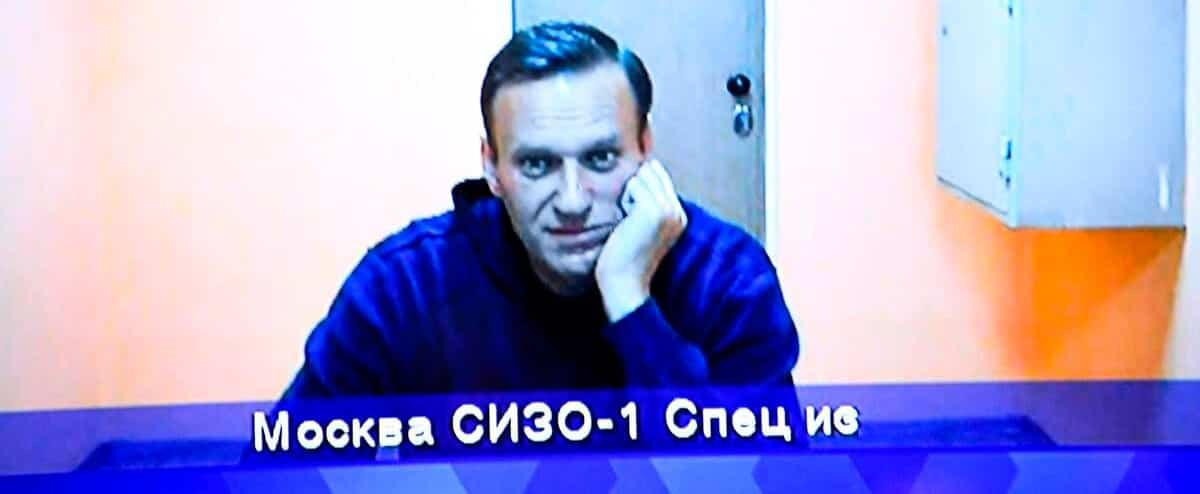After running the risk of several years in prison, opponent Alexei Navalny estimated Tuesday in court that his case was aimed at intimidation to put an end to the growing protest movement of Russians, before an indictment was filed against Vladimir Putin.
Also read: Russia: opponent Navalny in court, prison in background
Also read: When the Russians protest
Also read: More than 5,000 arrests in Russia during the pro-Navy protests
These lawsuits against the Kremlin critic, who survived the poisoning in August, sparked new Russian-Western tensions and a protest movement in Russia.
“The most important thing in this trial is to intimidate a large number of people.” The 44-year-old opponent said, “We are imprisoning one for intimidating millions.”
He also condemned the arrests of thousands during the support demonstrations over the past weekend, the largest opposition rallies in years.
“You cannot jail the whole country!” Hit from the glass cage for the accused.
Then Alexei Navalny repeated that it was Mr. Putin who ordered the Federal Security Service (FSB) to kill him, poisoning him in August in Siberia with a nerve gas.
He said, “It will go down in history as a panty poisons.”
Poisoning and convalescence
At the end of December, Mr. Navalny claimed in a video that he had trapped an FSB agent on the phone by pretending to be a senior official’s assistant, and the latter revealed that the poison had been applied to one of his underwear, and was stolen from his hotel during a trip to Siberia.
The case the court heard on Tuesday related to a complaint from the prison services, accusing him of violating his judicial control by not indicating that he is in a convalescence in Germany, as he should have done in the context of a suspended sentence dating back to 2014.
He was arrested on January 17 at the request of the Prison Services (FSIN) upon his return from Germany, where he spent five months recovering from his poisoning. Mr. Navalny confirmed to the hearing that he had warned the authorities about his address and the reasons for his absence.
He said, “What else could I do?”
The assassination attempt and the arrest of the opponent sparked fresh Western criticism. The head of European diplomacy, Josep Borrell, is expected to arrive Friday in Moscow, where he requested to meet Mr. Navalny.
Kremlin spokesman Dmitry Peskov said on Tuesday that it would be “nonsense” to link relations between the European Union and Russia to the fate of “a resident of a detention center.”
At Tuesday’s hearing, prosecutors reaffirmed that they wanted the three-and-a-half-year suspended prison sentence issued in 2014 against Mr. Navalny to turn into a stern sentence. The European Court of Human Rights denounced the ruling at the time.
This will be Mr. Navalny’s first long prison sentence.
In a crowded court, the opponent adopted an attitude of distrust, questioning prosecutors and prison services, before the eyes of his wife Julia and several foreign diplomats.
Almost 300 people were also arrested demanding his release Tuesday, according to the specialized non-governmental organization OVD-Info, while allies of the opponent called for a march before the court.
Business is a mess
In addition to this case, Mr. Navalny is the target of multiple measures. On Friday, he will appear for “defaming” a veteran. He is also accused of fraud because, according to the authorities, he transferred donations directed to his organization.
Legal proceedings against its allies and collaborators have also increased, with nearly all of them subject to house arrest, imprisonment or trial.
Nevertheless, the opponent managed to rally tens of thousands of supporters on January 23 and 31 in a hundred cities, especially in regions, which had traditionally been more apathetic than Moscow or St. Petersburg.
This challenge also comes a few months before the legislative elections scheduled to take place in the fall, against the backdrop of the declining popularity of the ruling party.
These protests are also prompted by the publication of Alexei Navalny’s Anti-Corruption Fund (FBK) an investigation accusing Vladimir Putin of being the true benefactor of a massive “ palace ” on the shores of the Black Sea, which was viewed more than 100 million times the next day. Youtube.

“Extreme twitteraholic. Passionate travel nerd. Hardcore zombie trailblazer. Web fanatic. Evil bacon geek.”

